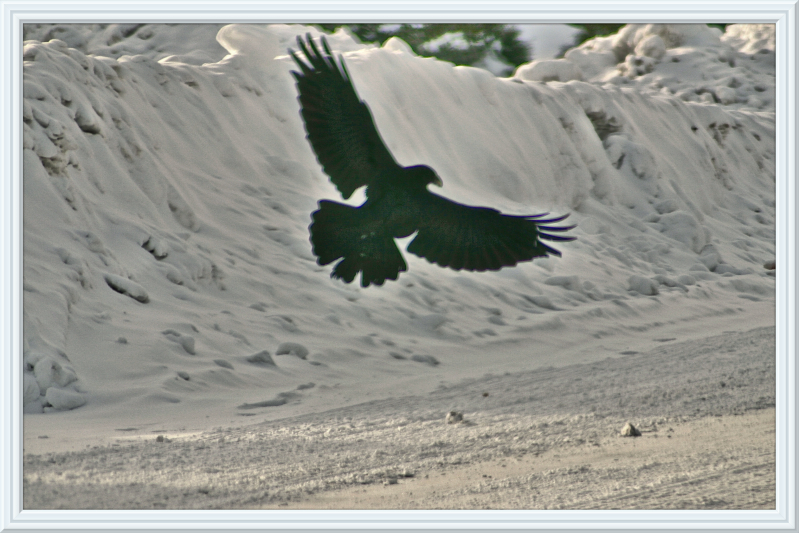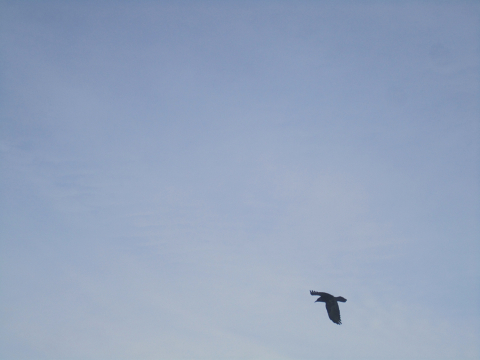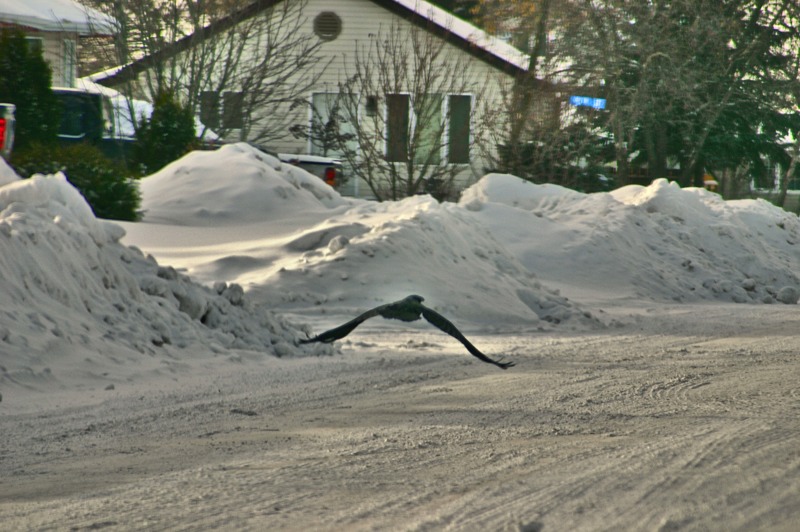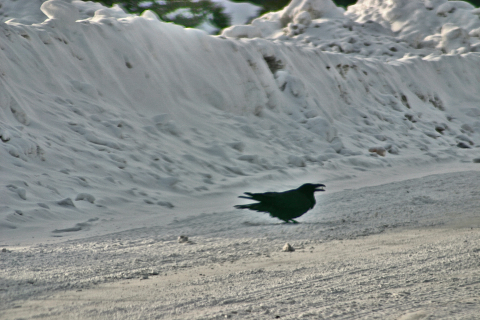
Dead horsemanship
Tisdale, February 13, 2014
by Timothy W. Shire
Tisdale, February 13, 2014
by Timothy W. Shire
.
The descendants of the dinosaurs soar over head all year long in this part of Canada. The top of the bird brained intelligence species, the Raven of the Corvus family in Corvidae. These playful long living creatures and their ancestors (over 2,000,000 years) have been overseeing us and those who lived on this land for tens of thousands of years. Before the migration from Asia about 15,000 years ago there were ravens here and long after we have as a species coughed and choked on our last breathe, there will still be ravens.

Now most of us like to think that we can learn, but check us out. For the most part, we make ravens look a whole lot smarter than us. Today, a Congress woman from Minnesota, who would like to be President of the United States, with three collage degrees, put this gem on her Facebook page. "If English was good enough for Jesus when he wrote the Bible it should be good enough for Coke." Christ who left no written material behind, would have had to live to be more than twelve hundred years old to have used English and Christianity maintains that he died at about age thirty-two.
I ask you, would a raven make a mistake like that?

.
It is totally remarkable how with our ability to read, write and communicate with images, we are desperately short of adaptation skills. The popularity of "conservativism" both now and in the past, demonstrates that most cultures hold the lack of adaptive behaviour in reverence. An almost fanatical attachment to tradition and "we do it this way" mentality, could well be the single most dangerous part of any society.
It is totally remarkable how with our ability to read, write and communicate with images, we are desperately short of adaptation skills. The popularity of "conservativism" both now and in the past, demonstrates that most cultures hold the lack of adaptive behaviour in reverence. An almost fanatical attachment to tradition and "we do it this way" mentality, could well be the single most dangerous part of any society.

If there is a need to understand the importance of innovation and coming up with new ideas, look to literature and the airs and you will find the people involved, include larger than should randomly be the case, of people who are themselves different. Left handed, homosexual and rebellious individuals all do well as creative people. The current television series "The Crazy Ones" delves into just what it is that is the spark of creativity. Two of the most innovative companies in history; Apple and Google were created by taking something new that did not exist and making it a marketable commodity.
Consider if you will Robert Frost's comment "Two roads diverged in a wood, and I — I took the one less traveled by, And that has made all the difference."
For many of us who work with computer technology, we are constantly having to confront the issue of software and hardware, that for unknown reason, or reasons, will not yield the desired result. Sadly, everyone one of us is wont to repeat the same steps over and over, thinking that we can solve a problem by doing the same thing again and again.
You have all heard the very often repeated phrase that "there is no point in flogging a dead horse."yet individuals, society and certainly governments, seem to find it sometimes impossible to try something different, but will repeat over and over the same failing strategy. No better illustration of this same track method of thought can be found than with the present federal government who for no observable, or statistically supported conclusion, believe that Canada needs more tradesman. Locked into this concept they spent millions on promoting a trades training programme during the Stanley Cup playoffs, a programme that did not even exist then or now.
Even more amazing is that research shows that what would produce a forward looking, positive growth economy is one in which educated creative individuals and groups forged onward in a quest for new things, new businesses, new technologies using science and technology to increase the wealth of the country and its people. It is positively staggering to think that a country could place its hopes for the future on innovation from old technology and old skills like being a plumber, electrician, machinist, or welder, in a world already dominated by robotics and digital data and communications technologies.
.
.
.
